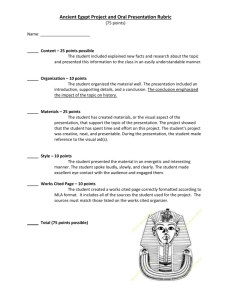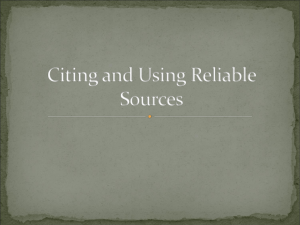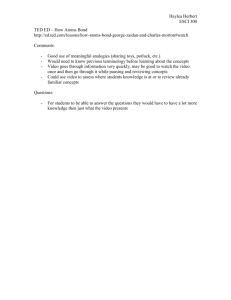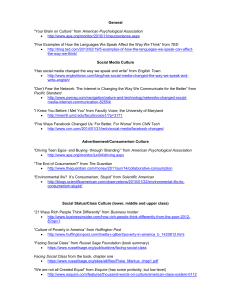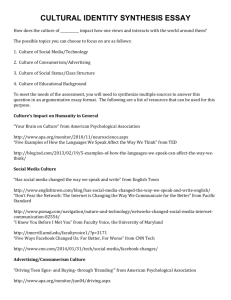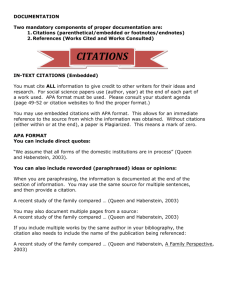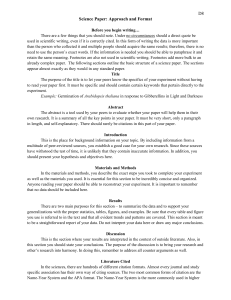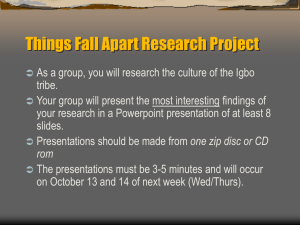TEDresearchassignment
advertisement
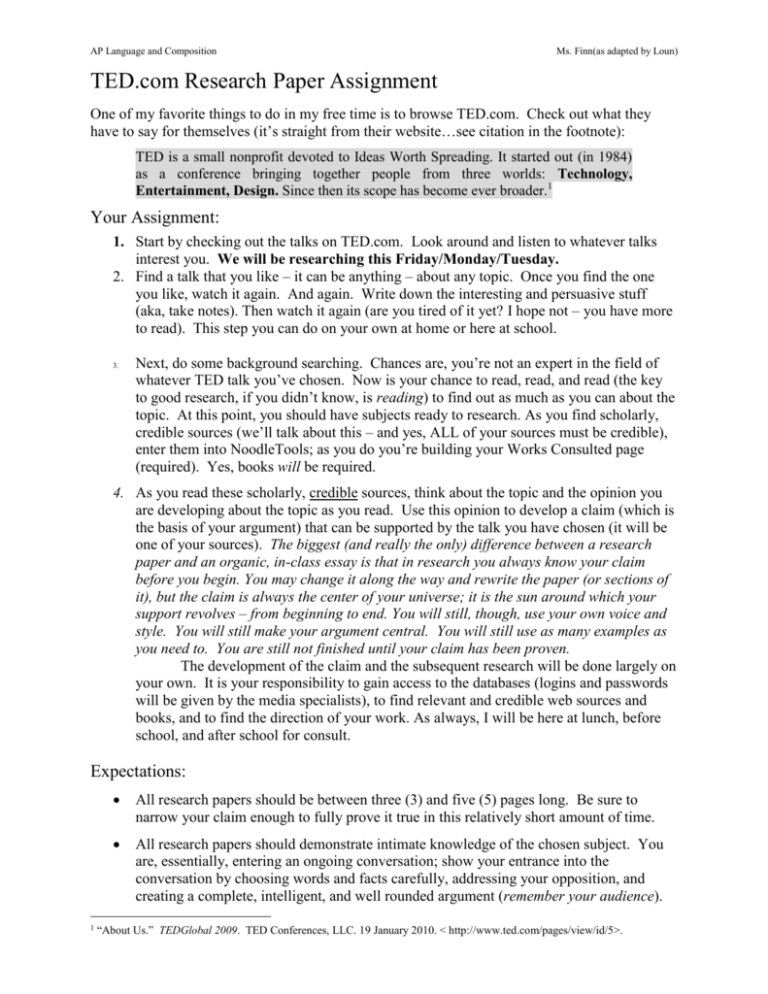
AP Language and Composition Ms. Finn(as adapted by Loun) TED.com Research Paper Assignment One of my favorite things to do in my free time is to browse TED.com. Check out what they have to say for themselves (it’s straight from their website…see citation in the footnote): TED is a small nonprofit devoted to Ideas Worth Spreading. It started out (in 1984) as a conference bringing together people from three worlds: Technology, Entertainment, Design. Since then its scope has become ever broader.1 Your Assignment: 1. Start by checking out the talks on TED.com. Look around and listen to whatever talks interest you. We will be researching this Friday/Monday/Tuesday. 2. Find a talk that you like – it can be anything – about any topic. Once you find the one you like, watch it again. And again. Write down the interesting and persuasive stuff (aka, take notes). Then watch it again (are you tired of it yet? I hope not – you have more to read). This step you can do on your own at home or here at school. 3. Next, do some background searching. Chances are, you’re not an expert in the field of whatever TED talk you’ve chosen. Now is your chance to read, read, and read (the key to good research, if you didn’t know, is reading) to find out as much as you can about the topic. At this point, you should have subjects ready to research. As you find scholarly, credible sources (we’ll talk about this – and yes, ALL of your sources must be credible), enter them into NoodleTools; as you do you’re building your Works Consulted page (required). Yes, books will be required. 4. As you read these scholarly, credible sources, think about the topic and the opinion you are developing about the topic as you read. Use this opinion to develop a claim (which is the basis of your argument) that can be supported by the talk you have chosen (it will be one of your sources). The biggest (and really the only) difference between a research paper and an organic, in-class essay is that in research you always know your claim before you begin. You may change it along the way and rewrite the paper (or sections of it), but the claim is always the center of your universe; it is the sun around which your support revolves – from beginning to end. You will still, though, use your own voice and style. You will still make your argument central. You will still use as many examples as you need to. You are still not finished until your claim has been proven. The development of the claim and the subsequent research will be done largely on your own. It is your responsibility to gain access to the databases (logins and passwords will be given by the media specialists), to find relevant and credible web sources and books, and to find the direction of your work. As always, I will be here at lunch, before school, and after school for consult. Expectations: 1 All research papers should be between three (3) and five (5) pages long. Be sure to narrow your claim enough to fully prove it true in this relatively short amount of time. All research papers should demonstrate intimate knowledge of the chosen subject. You are, essentially, entering an ongoing conversation; show your entrance into the conversation by choosing words and facts carefully, addressing your opposition, and creating a complete, intelligent, and well rounded argument (remember your audience). “About Us.” TEDGlobal 2009. TED Conferences, LLC. 19 January 2010. < http://www.ted.com/pages/view/id/5>. AP Language and Composition Ms. Finn(as adapted by Loun) All research papers must have at least three (3) cited sources and at least seven (7) sources listed and annotated on a Works Consulted page (these seven sources should include the cited sources). The TED talk must be one of your cited sources. It can be one of the required three, or it can be additional. All sources quoted or paraphrased in your paper should be correctly cited in-text. All research papers must be accompanied by a Works Cited Page as well as an annotated Works Consulted page (see below for requirements). The Works Consulted and Works Cited pages must be ultimately saved into your research paper, and then the entire research paper must be submitted electronically by the due date. All research papers must be formatted and cited in either MLA or APA style, depending on your topic. Collegiately, MLA is used for subjects in the humanities and APA is used for subjects in the sciences (hard and soft science). If you don’t know what kind of subject yours is, check with either me or one of our helpful composition assistants. If you’re confused about this style, check NoodleTools and/or your style manual. You can also look at the sample paper (which is cited using APA – the subject is education and education is a soft science). Annotated Works Consulted: Must be formatted in either MLA or APA style Must include at least one of each of the following sources: book, academic journal (you’ll find these on the database), appropriate website, TED talk. An annotation for each source should adequately answer the following questions: how did you use this source (i.e. what background information (be specific here by adding exactly what background information you got), additional reading, unused claim support did you find within)? and, what did you learn about your topic from this source (again, be specific)? You can type your annotations directly into NoodleTools when you create your citation – this means that you have to read your source before you create the citation and decide whether or not to include it. Should not be repetitive. Be specific to each source in your annotation; if they repeat each other, you’ve wasted your time not only reading the same thing over and over again, but also annotating. You may have some overlap for triangulation, but there should be very little beyond that. Your final research paper (including Works Cited and Works Consulted pages) are due on Tuesday, February 16th. If you are confused about any of these expectations, we will shortly review a sample paper or come see me.
